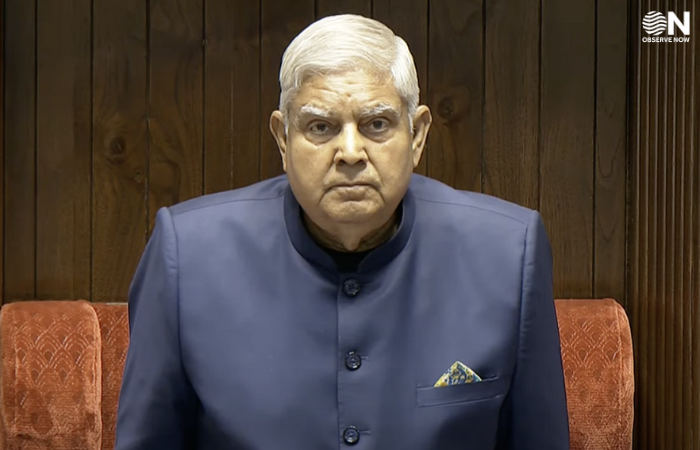Vice President Dhankhar Resigns Suddenly, Citing Health Concerns

In a stunning and unexpected development, Vice President Jagdeep Dhankhar tendered his resignation on July 21, citing health issues. The move comes midway through his term, which began in August 2022 and was scheduled to continue until 2027, and marks the first such resignation for reasons other than ascending to the presidency.
Dhankhar, 74, submitted his resignation letter to President Droupadi Murmu immediately following the first day of the Rajya Sabha’s monsoon session, where he was presiding. In the brief letter, he stated his decision was driven by a need to prioritise his health and follow medical advice, formally stepping down with immediate effect in accordance with Article 67(a) of the Constitution. The sudden announcement surprised many, raising questions given his active role in the parliamentary proceedings earlier that day.
The resignation leaves an important constitutional vacancy. Until a new Vice President is elected, Rajya Sabha Deputy Chairman Harivansh is expected to oversee the House, though President Murmu reserves the authority to direct otherwise. An election to fill the post will now be organised by the Election Commission, with only members of both houses of Parliament eligible to vote.
Reactions from Indian political circles have been swift. Senior Congress leader Jairam Ramesh described the departure as “shocking and inexplicable,” suggesting that health reasons alone may not tell the whole story. Likewise, Kapil Sibal, a veteran parliamentarian and advocate, praised Dhankhar as a true patriot and urged public acceptance of the resignation without speculation.
Dhankhar, a former Governor of West Bengal and senior advocate, had presided over significant parliamentary events during his short tenure, including the controversial impeachment notice filed against him in December 2024—though that motion was dismissed on procedural grounds. Known for his firm stance on parliamentary decorum, he also championed ecological reforms and emphasized the importance of balancing executive and judicial authority.
His departure in the middle of the monsoon session has prompted both logistical and symbolic repercussions. Lawmakers from across the political spectrum had gathered for scheduled debates, and some observers worried the abrupt exit could disrupt the session’s flow. Dhankhar was expected to convene the Business Advisory Committee later this week and had hinted at making significant statements on judicial reforms.
Dhankhar has experienced several health setbacks in recent months. He underwent angioplasty in March at AIIMS and fainted during a public event in June—though officials noted he recovered promptly and remained on duty. Whether these incidents directly informed his decision remains unclear.
As India flags lessons from previous unexpected resignations, such as those by Bhairon Singh Shekhawat and Krishna Kant—who stepped down to seek presidential terms—Dhankhar’s case is distinct, rooted in personal health rather than political ambition. His resignation, effective immediately, places new urgency on expedient electoral processes and leadership continuity in India’s legislative framework.
With the post now vacant, attention turns to the selection of a successor and the transition process. Meanwhile, Dhankhar’s abrupt departure is likely to be studied as a rare but significant event in India’s constitutional history.
















